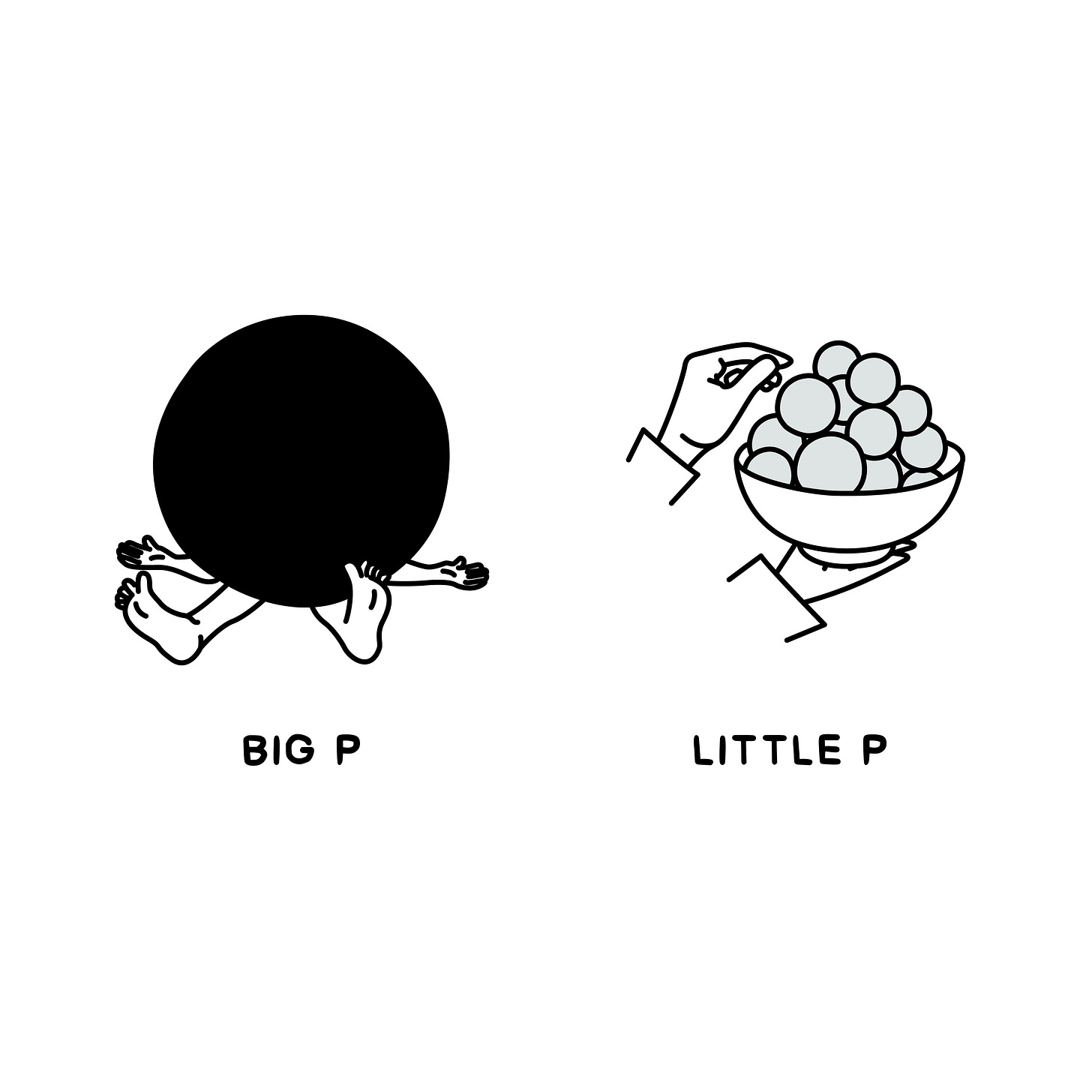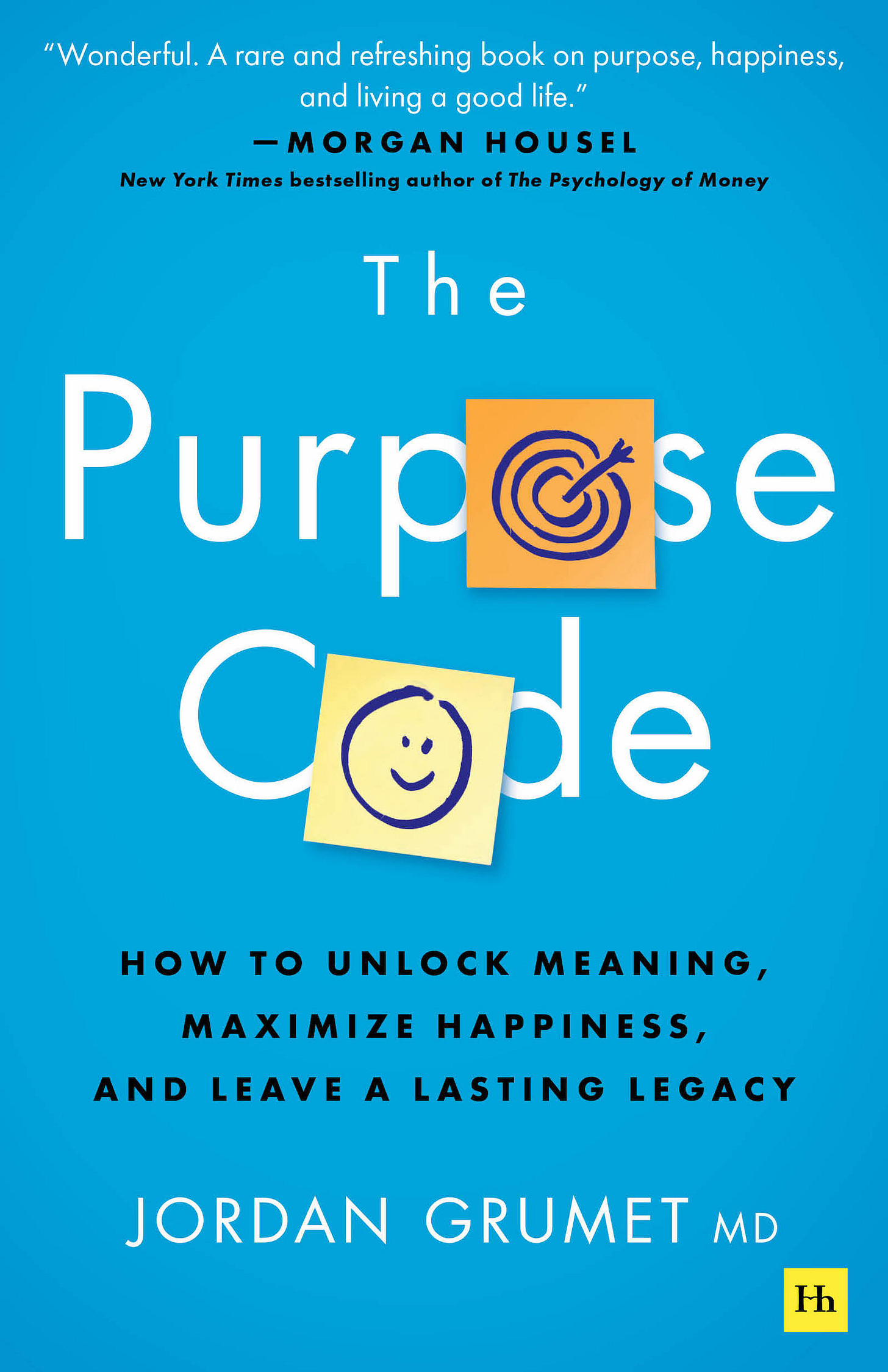The Myth of Big P Purpose
Big P Purpose promises fulfillment but often leaves us empty. Little P Purpose, rooted in joy and process, is the secret to meaningful living.
I hear this all the time. People read my book The Purpose Code or hear me talk about Little P Purpose (process-oriented purpose) versus Big P Purpose (big, audacious, goal-oriented purpose) and say:
"My problem is, I just don’t know the right Big P Purpose for me."
This always sparks a debate. My response? There’s no “good” version of Big P Purpose.
Big P Purpose: Why It Doesn’t Work
Many people cling to the idea of Big P Purpose—changing the world, leaving a legacy, achieving monumental goals. And here’s why I believe it always fails:
Big P Purpose is an all-or-nothing benchmark. It’s high stakes, anxiety-inducing, and leaves no room for failure. If you don’t achieve it, you feel like a failure. Even if you do achieve it, it often doesn’t deliver the emotional payoff you’re chasing.
When I ask people why they want Big P Purpose, their answer always boils down to this:
“Because it means I’m enough. I’ll have proven my worth to myself and the world.”
But here’s the catch: Big P Purpose doesn’t make you feel enough. It’s a treadmill of constant striving, and once you hit one milestone, another looms ahead.
The Difference Between Meaning and Purpose
Big P Purpose often gets confused with meaning. Here’s the distinction:
Meaning is the story you tell yourself about your past. It’s cognitive. It’s about how you frame your life experiences.
Purpose, on the other hand, is about what you do in the present, the things that light you up and give you joy.
Unhappy people tend to tell themselves victim stories—how life, trauma, or circumstances thwarted them. These stories reinforce a sense of "not enoughness." Happy people, however, tell heroic stories of resilience, where they overcame challenges and proved their worth.
The problem with Big P Purpose is that it’s another way to try to prove “enoughness.” But as the story of Steve Jobs illustrates, it doesn’t work.
The Steve Jobs Lesson
Steve Jobs is often held up as a beacon of success. He revolutionized technology, made billions, and changed the world. But by many accounts, Jobs was unhappy and often miserable.
Why? Because he was trying to use Big P Purpose to prove he was enough. His adoption and feelings of rejection by his birth parents were well-documented driving forces in his life. But no amount of achievement could fill that void.
Big P Purpose doesn’t fix “not enough.” Instead, it turns into an endless race against a benchmark you’ll never fully reach.
Why Little P Purpose Is the Answer
Little P Purpose is different. It’s process-oriented and rooted in joy. It’s about doing what lights you up—activities that bring fulfillment regardless of outcome.
You can have big goals within Little P Purpose, but you must be goal agnostic. That means you love the process so much that you win whether or not you hit the goal.
Here’s the truth: Little P Purpose is where true happiness lies.
When you pursue what lights you up, you attract others—collaborators, mentors, and students. Together, you create ripple effects that spread far beyond your immediate sphere, impacting the world in ways you may never even see.
The Butterfly Effect of Little P Purpose
Imagine a butterfly flapping its wings, creating small changes in the air that eventually build into a hurricane far away. Little P Purpose works the same way.
Pursue what lights you up, and your joy and passion will inspire others. Those ripples can create profound change over time, but it’s not because you set out to “change the world.” It’s because you followed your purpose and let the process unfold naturally.
The Takeaway
Big P Purpose is bad. It’s a recipe for anxiety, unhappiness, and endless striving. Little P Purpose is good. It’s abundant, joyful, and fulfilling.
You can’t have both and still be happy. Choose Little P Purpose. It’s not selfish—it’s the most selfless way to live.
Reference:
Isaacson, Walter. Steve Jobs. Simon & Schuster, 2011.
Today’s Poll
Did you catch this week’s episode of Earn & Invest (Click to listen)?






Random analogy to sports/fandom...
I thought of this the other day when my beloved Buffalo Bills lost for a 4th time in 5 years to the Kansas Chiefs in the playoffs, which many consider another disappointment.
Winning the Super Bowl is no doubt a big "P" Purpose achievement. Many players and fans say "it's the only thing worth chasing." But every year, 31 out of 32 teams don't win the SB (2,139 players on those teams). And you have all-time great players, such as Josh Allen (QB of the Bills), thinking their career is inadequate if he never wins a SB (despite being on a Hall of Fame path).
Many Bills fans themselves consider the franchise cursed for coming close, but famously never winning a SB in franchise history. They will say things like: "just win one before I die" as if their sports team success will fill a hole in their own lives.
Contrast that instead with little "p" purpose (or little "f" fandom), which would be grateful for the many entertaining games each year, the community that comes around sports team, appreciation of the game and the skill of the players, and so on.
After a disappointing defeat, fans and players can choose whether winning is really required to fulfill a big purpose or whether we can appreciate the process of the game.